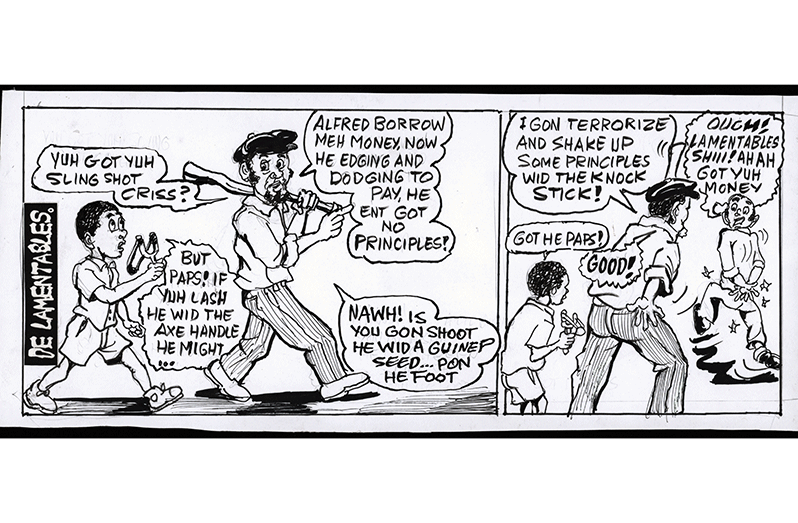IN my mid-teens, a young lady friend asked me to accompany her to a priest, and then to the hospital to see her infamous “bad man” cousin. I began to complain, but she assured me that she had the money.
“Suh wha’s the problem with yuh bad-man cousin?” I asked.
She replied, “Like somebody poison he in jail. He feel that he gon dead, suh he want fuh talk to this priest. Yuh got any more questions?”
“Nah,” I replied sensibly to her irritated response, and we continued to our two destinations.
At the hospital, I was told where to stand; next to her sceptical brother, completely out of earshot. Some other older relatives were there, and the priest, an elderly man, was seated next to the bed. The patient on the next bed quietly got up and drifted away. I waited there for about an hour or more until her relative seemed to fall asleep. She came over to me, and said, “He’s resting now, and don’t ask meh no stupidness. We gon talk later.” I shook my head in humble agreement, and we left.
The summoning of the priest kept me thoughtful for a while. I know my environment, and men like this usually sought so-called spiritual guidance from other sources, such as ‘guard rings’ and so on.
The bottom line with our human world is its variety of choices when cast upon the landscape of myriad circumstantial challenges. It appears that none is above temptation or the embrace of darkness, except for a discreet few. Our culture, indeed, shapes us.
This man who wanted a priest at his bedside before he died was no doubt brought up to respect the teachings of his denomination, along with the principles of his folks, yet it was obvious he had made decisions outside of those teachings, as our deceptive social realities may impose and logically dictate.
I downloaded a paper by Baldwin M. Way and Matthew D. Lieberman on genetic contributions to cultural differences. I also think that the nature of society can develop cultural norms by force.
For example, Guyana’s colonial heritage was steeped in racism and marginalisation. My experiences have shown me that one can be embraced at a stratum, but this does not mean acceptance.

Thus, rude awakenings into realisation can compel one to gravitate to subcultural or other norms to facilitate the required social regime, sometimes not to impress those of past encounters, but to suffice self, upon realising that the snobbery experienced before came not from particularly “saintly” or honourable hands within the clique one once admired.
In life, there are always alternatives that beckon. That man who required the priest at his deathbed had dual interpretations from those whom I enquired who really knew him. He was tough, but principled, yet he had a bad side. My conclusion was that he was human, and that the human world requires boldness and self-nurturing; a common intelligence to adopt and interpret the social environment in which we dwell.
I grew up in a world where the term, ‘Principle’, encompasses what is expected, and how one is remembered.
In closing, I remember a favourite saying: “I know duh person good; deh got principle. If deh seh deh gon do that, deh gon do just duh. If deh can’t mek it, deh gon tell yuh; deh ent gon lie, and hide.”












